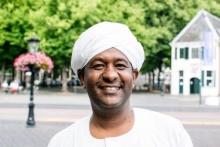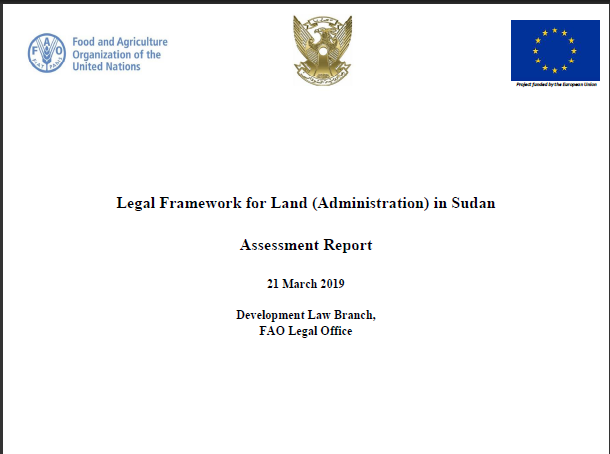
Topics and Regions
Land governance, strategist and mapping specialist has more than twenty years of experience land governance, urban/rural development and land related conflict resolution. Before he initiated the Centre for Land and Environmental Governance in Sudan (ISTIDAMA Centre), where he works as a researcher and lecturer, Salah worked as a Strategy and Quality manager at the Ministry of Physical Planning. He conducted several consultancies and advisory work for several organisations such as: GLTN of UN Habitat, DFID and Arab Land initiative. Salah is an Arabic native speaker, he obtained a master’s degree in International Relations, Geoinformation Science and Earth Observations at the University of Twente and a Bachelor’s degree in Surveying Engineering.
Details
Location
Contributions
Displaying 11 - 13 of 13Assessment Report - Legal Framework for Land (Administration) in Sudan
This report assesses the legislation of Sudan relating to land tenure and administration (see the list in the Annex to this report) against the provisions of the Voluntary Guidelines on the Responsible Governance of Tenure of Land, Fisheries and Forests in the Context of National Food Security (the VGGT). The assessment is structured along a set of indicators from the VGGT that were considered most relevant for the legal framework on governance of land tenure in Sudan.
Investing in rural people in Sudan
To mitigate the disastrous consequences of COVID-19, IFAD has committed itself
to supporting affected rural people in many countries, including Sudan, through the IFAD-established Rural Poor Stimulus Facility (RPSF). Additional support
of US$747,650, requested by the Government of Sudan to help 5,000 families
of small-scale farmers in the three states of Kordofan and in Sennar state,
has been approved. This will contribute to mitigating the negative impacts of COVID-19 on small-scale producers.
Urban transformations and land governance in peri-urban Khartoum: the case of Soba
The New Urban Agenda and SDG 11 promote inclusive urban development, but limited empirical
knowledge exists on how such global rhetoric plays out on the ground. This paper contributes
to the inclusive city debate by focusing on the case of Soba, a peri-urban area at the fringes
of the capital of Sudan. Based on an explorative study of secondary material, semi-structured
interviews and structured observations it aims to systematically analyse the dynamics of periurban
development. Findings show how the rising pressure on land results in commoditisation,



